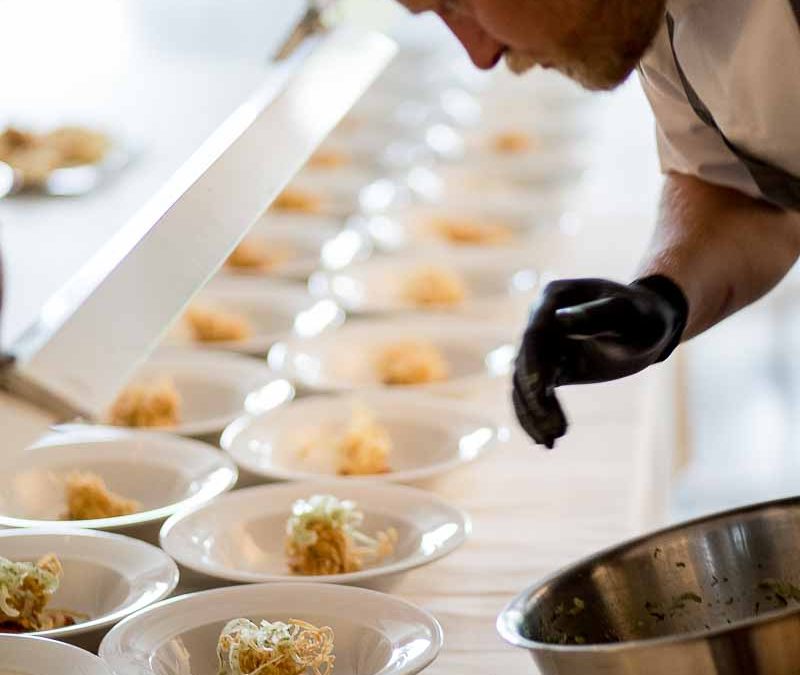One of the first decisions you will be faced with in planning a wedding
One of the first decisions you will be faced with in planning a wedding is choosing the desired wedding style. The ‘style’ decision will influence all the aspects of the wedding, such as: the wedding dress, size of the wedding, time of day or year, location, attire for maids, men’s formalwear, ceremony, reception, all the way down to the invitations.
Weddings can range from lavish and ultra formal to the modest informal get together. It is important for you to choose a style that reflects your personality and will maintain your budget.
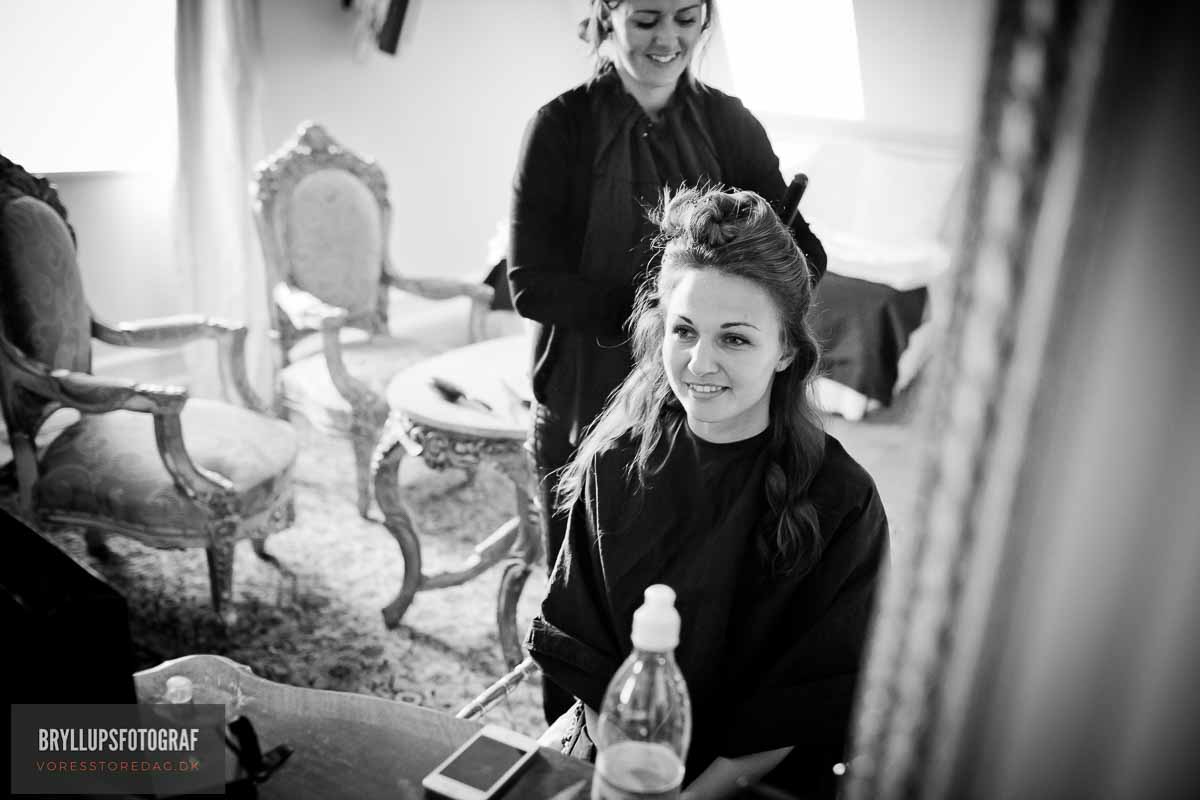
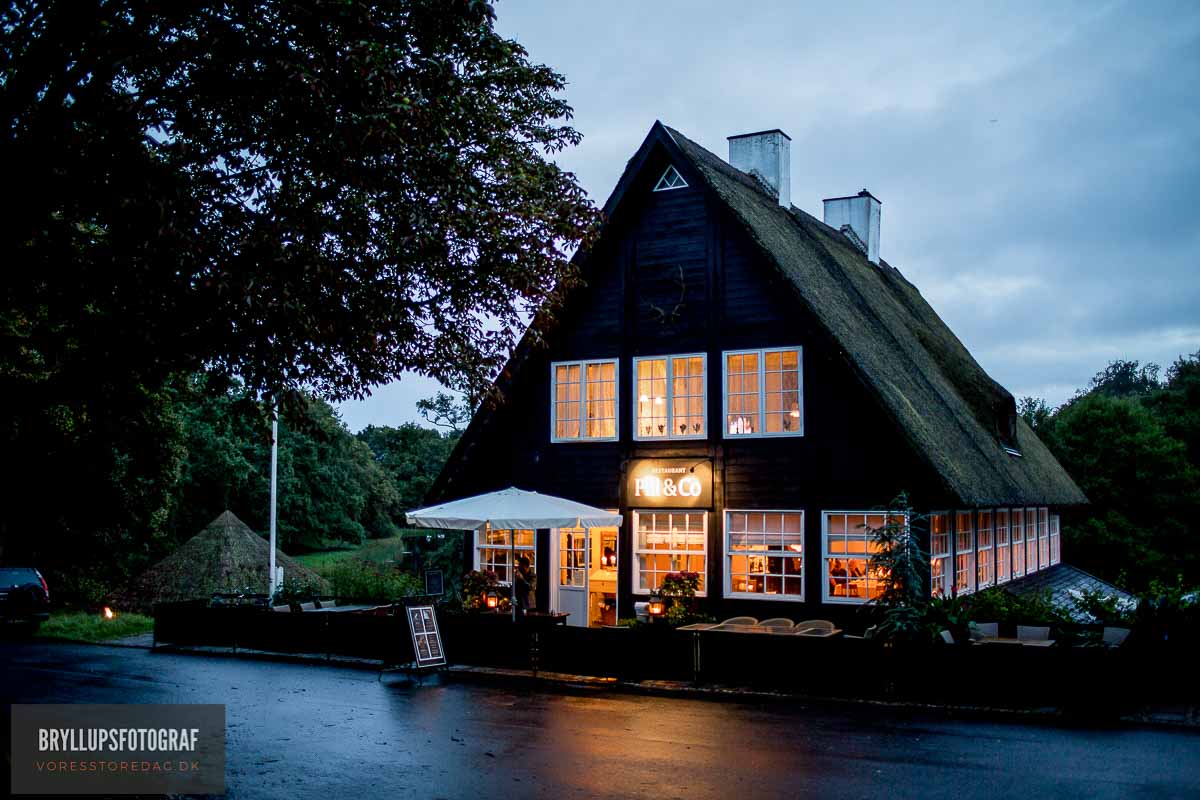

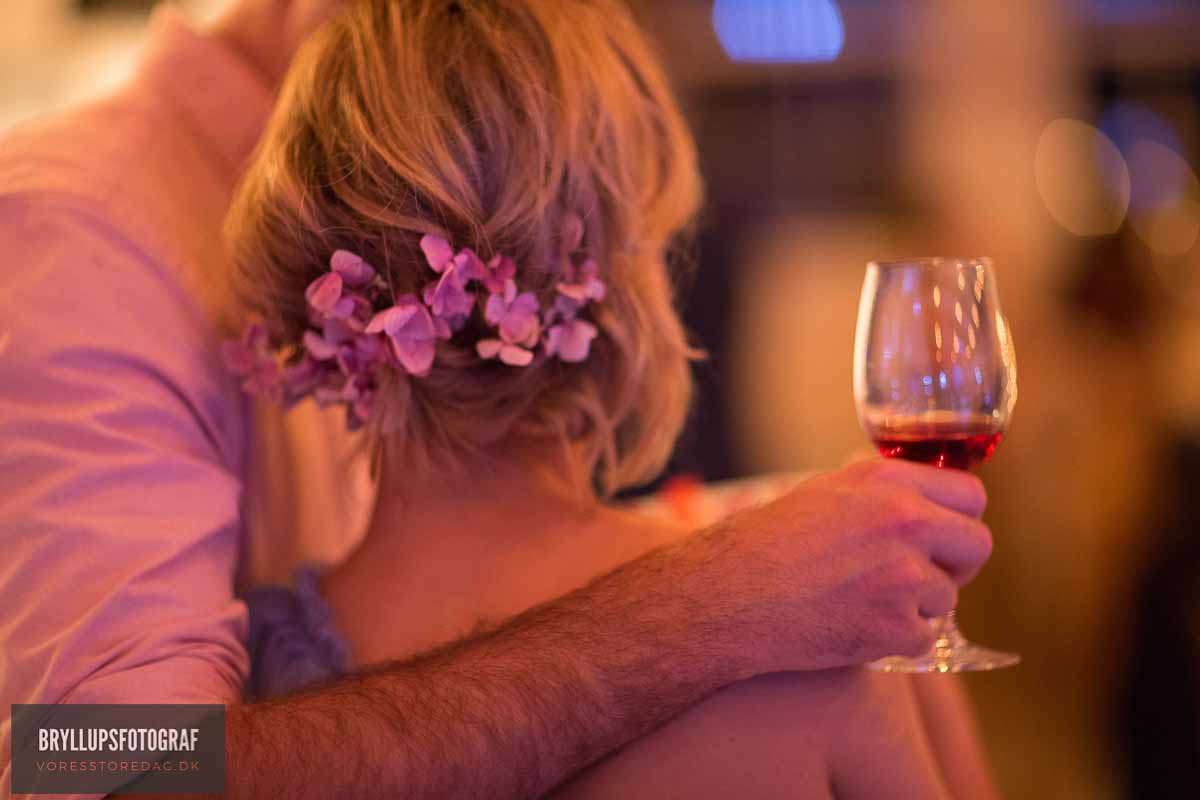



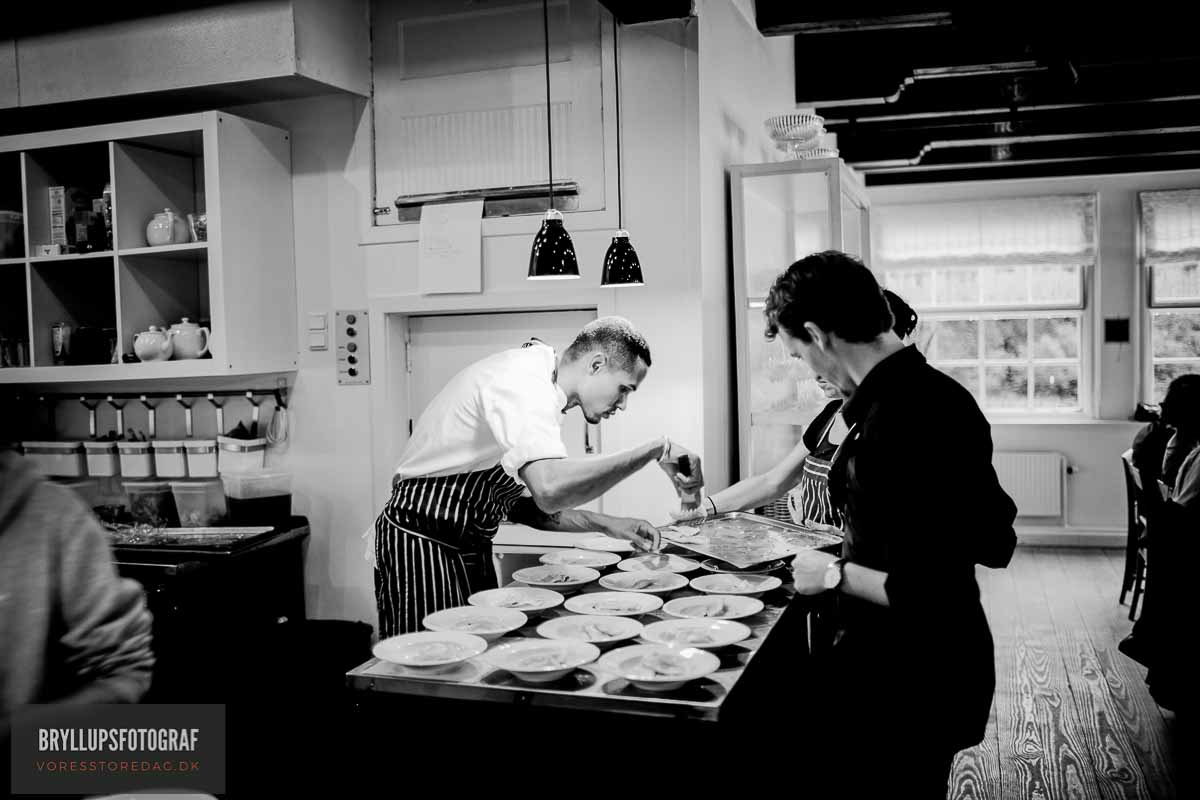
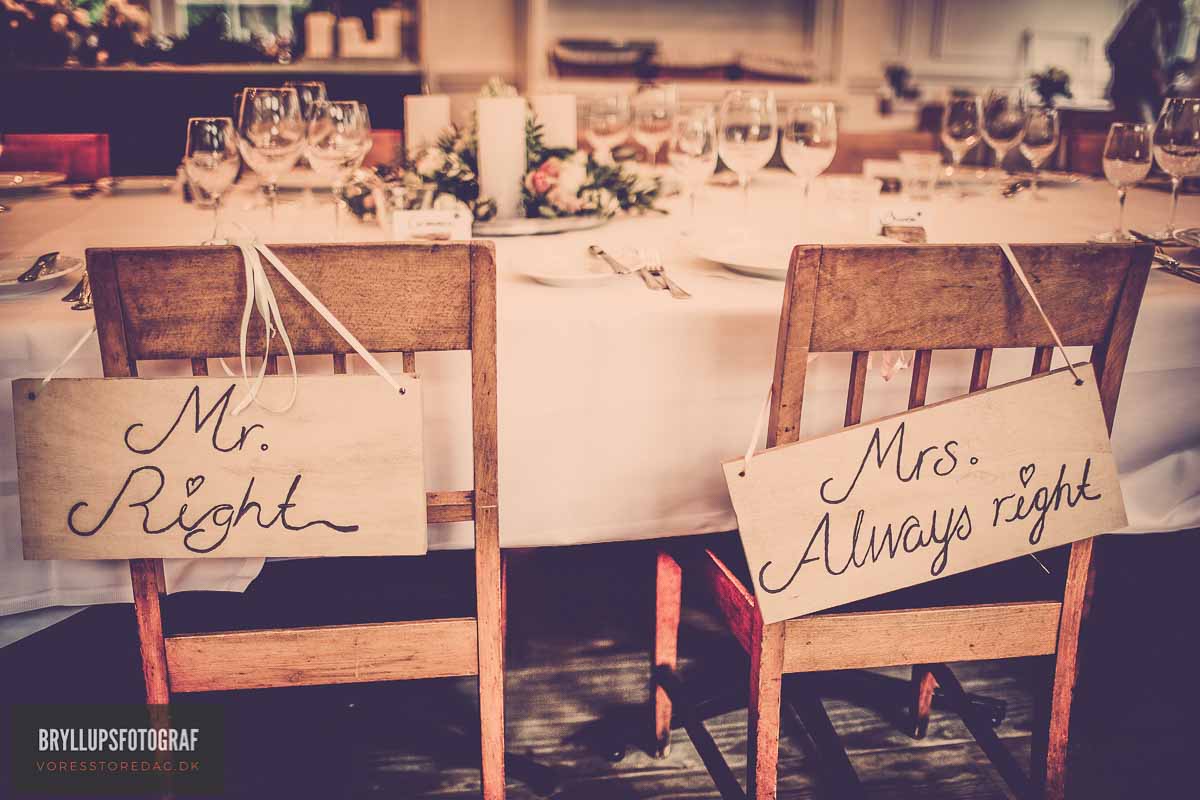
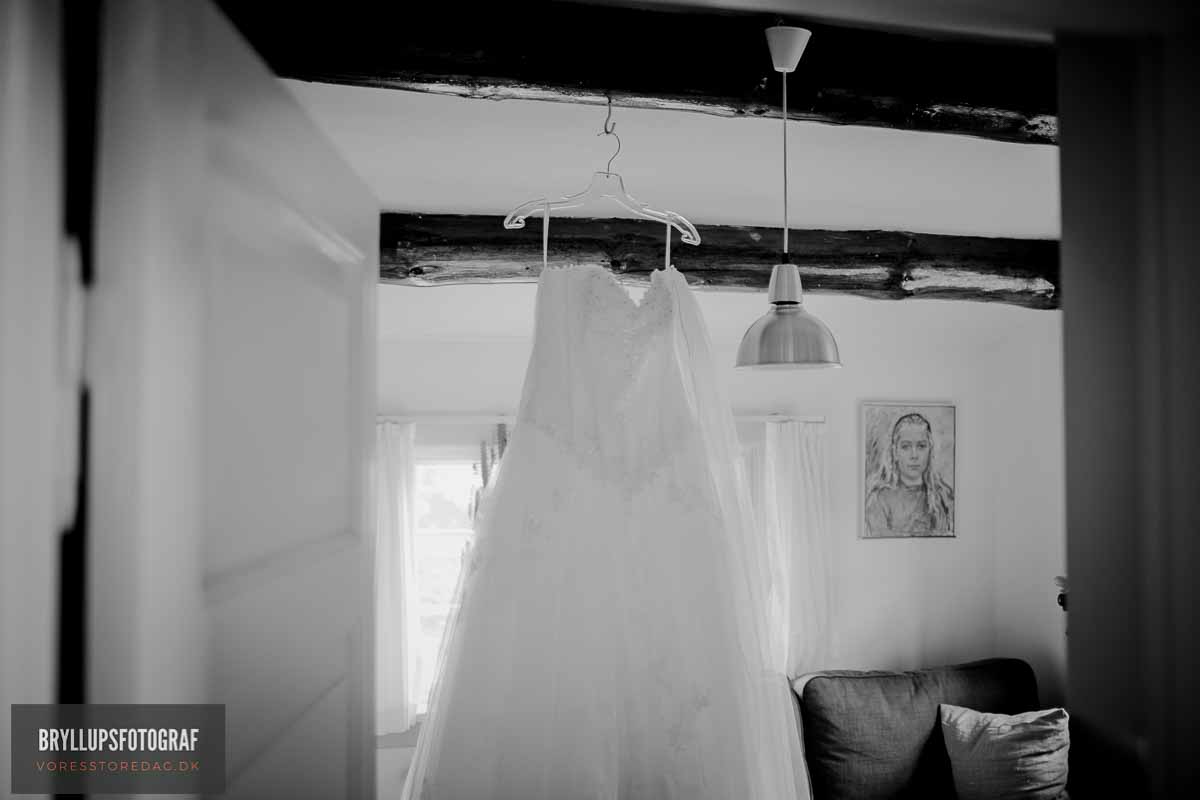

Ultra Formal Weddings
If your wish is to celebrate your love with tradition, elegance and grandeur, you may choose to have an ultra formal wedding. Your elaborate white or ivory gown will reflect the formality of the celebration with a cathedral train and equally impressive veil. Six to twelve bridesmaids will share in your joy along with two hundred or more friends and relatives. Your attendants stunning full-length dresses will enhance the ceremony, as will the long dresses of your mother and future mother-in-law. Your groom will wait in a gray or black cutaway coat, stripped trousers, and matching ascot. A beautifully decorated church, synagogue, or hotel will serve as the setting for the ceremony, which will take place in the afternoon or early evening. Following the ceremony, you will celebrate with your guests at a lavish reception of dinner and dancing. Invitations of fine quality paper and classic engraving will inform guests they will be attending a wedding of magnificent splendor and tasteful elegance.
Formal Weddings
On s slightly smaller scale, the formal wedding is rich with tradition and beauty. You will choose a formal gown with chapel length train and flowing veil. The full-length dresses of your two to six attendants will compliment your breathtaking couture. Your groom will proclaim his love in a full dress (tails) or traditional tuxedo. Mothers in full length or ankle length dresses. Morning, afternoon, or evenings are all ideal for a formal ceremony in a church, social club or garden. A festive reception of one hundred or more friends and relatives allows you to rejoice in your marriage with food and beverage befitting the hour along with music and dance.
Semi-Formal Wedding
Breaking away from tradition, your wedding becomes truly special to you in a semi-formal ceremony or second wedding. The bride will wear a floor length or tea-length wedding gown in white or ivory. A short veil or hat can add elegance. One to three attendants will accompany you down the aisle in delicate tea-length or floor length gowns, similar gowns worn by mothers. The groom may wear a formal suit or tuxedo. A chapel, private home or club may host the ceremony. The reception may consist of hors d’oeuvres and champagne or cake and punch. Fifty or more guests will help you celebrate your proclamation of love.
Informal Wedding
An informal wedding lacks the pomp and ceremony of other wedding styles. Yet they may be as beautiful and memorable as any wedding big or small. You may choose to wed in a modest floor length gown or a striking dress or suit. One maid of honor and best man will complete your intimate wedding party. Your groom may choose to wear a suit or sports coat. You and your groom will share your vows in a judge’s chamber, private home, on a beach, in a garden setting or small church. Traditionally, an afternoon informal wedding will host fewer then fifty of your closest friends and relatives.
Who pays for What?
This question has become a hot topic among brides, grooms, and their families. It can often create unnecessary feuds and tension. A wedding is a public announcement and celebration, and is not meant to impose financial strain on you or your family.
Traditionally, the bride and her family paid for most everything associated in a wedding. Today, relationships and roles of the traditional marriage have changed, as a result who pays for what is not set in stone and can be taken care of by a number of people.
Family incomes, long distance weddings, divorced parents, second marriages, all these come into play. You need to discuss with everyone involved. That means bride, groom, and both sets of parent’s need to talk about the wedding style, plans, budget, and who is paying for what.
Some parents will want to finance the entire wedding, and some will give the bride and groom a set amount.
In today’s world, more and more brides and grooms opt to pay for the entire wedding themselves. Couples who choose to live together before they “tie the knot” often pay for more wedding expenses them selves. Those marrying for a second time or more usually pay for the wedding themselves. If parents are living on a fixed income and do not have the means to help, the bride and groom may fund the wedding.
Diplomatically, ask each side of your families if they will be able to help with the cost of the wedding. Tell them your plans and ask if them if there is anything special they would like during the ceremony or reception. They may tell you of a traditional family ceremony you may want to include.
Have your parents give you a good idea on the number of guests that they would like to invite. Keep in mind, your wedding is a big social event for parents!
Splitting the expenses might also be an option. A three or more way split with the bride’s family, groom’s family, and you may be a solution. All three parties would then contribute funds towards the total wedding budget or each party can pay for a percentage depending on guests.
Traditionally, the bride’s family pays for:
• Wedding dress, veil, accessories
• Invitations, announcements, enclosures, personal stationary
• Trousseau and lingerie
• Bouquet/corsages for attendants
• Flowers for ceremony and reception site
• Rental fee for church or chapel
• Engagement and wedding photography
• Fees for the sexton, organist, and soloist
• Rental fees for aisle carpet and other equipment
• Transportation for all bridal party to the ceremony and reception sites
• The Complete reception: Food, beverage, music, decorations, gratuities and other services
• Groom’s ring
• Wedding gift for the groom
• Gift’s for bride’s attendants
• Hotel lodging for attendants and out of town friends
• Gratuities to police directing traffic and/or parking
• Bride’s luncheon
• Rehearsal dinner (optional)
• Corsages for mothers, grandparents, special guests
Traditionally, the groom’s family pays for:
• Bride’s engagement and wedding ring
• Marriage license
• Ceremony officials fee
• Bride’s flowers (bouquet and going away flowers)
• Wedding gift for bride
• Gifts for best man, grooms men, ushers
• Hotel lodging for out-of-town grooms men/ushers
• Wedding attire (grooms)
• Rehearsal dinner (optional)
• Honeymoon
• Blood tests (if required)
• Gloves, ties, ascots for men in wedding party
Traditionally attendants pay for:
• Personal wedding attire (except flowers)
• Traveling expense (except hotel)
Preparing your wedding budget
After deciding on a wedding style, and who will pay for what, you need to work on a budget that everyone agrees on.
You will need to collect some information from area service providers via the telephone on estimated costs. Then it is suggested to add 20% to the cost for over-run or unexpected charges.
Overspending and overpaying are two areas you need to keep under control in any wedding. Here are a few things to watch for.
Research: get recommendations, compare and price check all service providers, sites, and apparel stores. What you will learn is that all service providers and stores offer different pricing, levels of service and quality. You will also learn the going rate in your area, which can be helpful in bartering a better deal or finding out who offers the best value for your money.
Shopping for your apparel and accessories can be just the same. Compare prices. One dress shop can be priced higher, but the price may include alterations, storage bag and steaming. Where as the lesser-priced store may add this cost on. Shop online, it can save you time and money.
Use your phone and the yellow pages, the web, and recommendations from other brides and service providers. Ask the same questions to each of the vendors so you are comparing them all evenly, apples to apples.
Once you find your photographer, ask her or him for recommendations. If your photographer has been in your area a number of years, they have worked with a lot of service providers. A wedding photographer gets to work with every aspect of your wedding and see the end result of many service providers’ work. They may be able to recommend the best people in the area.
Visit Them
Make appointments with the shops/service providers you are more interested in before you visit. This will help insure you will get better service if they know you are coming, many small shops and service providers run with small staffs.
If you will be renting items from them, ask to see the equipment. Is the equipment clean, workable and untarnished? Seeing the items will give you some insight as to how well the company is run. If staff and equipment is disorganized, broken and incomplete then you may want to reconsider them as a potential provider.
If the provider seems like the one you want and the date is open, ask for some literature and sample of their contract, policies and prices to review. Do not get pressured into signing something that you can’t get out of, or that ties you to something you do not want or is may be overpriced.
In the comfort of your home, review the information and pricing. Decide on what you want, contact the providers with any questions, and sign the contracts when you are ready. Keep in mind, some providers only handle one wedding at a time, so do not take too long or you might be disappointed.
Possible money savings:
Before you sign any contract or make a purchase, ask the retailer or service provider about quantity discounts, specials or sale prices. The salesperson may have overlooked a sale price or quantity discount. Some service providers may add in a couple “extras” at no cost.
The closer your work with your provider and the more you purchase everything from one source, the more likely they will work extra hard for you.
Determin Your Color Scheme
The next step in planning a wedding to choose a color scheme. Wedding colors are very important; they will be reflected throughout the ceremony and reception and enforce the wedding tone established by the wedding style.
Primarily, wedding colors will beautify your celebration through the bridesmaid’s dresses and groomsmen attire. Choosing a color to enhance every member of your wedding is very difficult, but traditional colors such as blue, pink, peach and ivory have a versatility that compliments most everyone’s features and complexions.
Wedding colors will also be reflected in the bridal bouquet and floral arrangements. This may determine which flowers you are able to use. Not every natural flower color will match your chosen scheme; silk flowers may be a better option.
Your color scheme will also be reflected in such things as your invitations, favors, decorations, and more. You may wish to discuss color options with your florist, dress store and tuxedo shop to make sure they can match a color before making a final decision.
The meanings of colors may also influence your decision.
Through years of tradition, different colors have grown to imply feelings and emotions as well as reflect personality. Choose a color that will enhance the season, make a statement, reflect your taste, or archive your dreams.
Here are just a few colors and some background information on them.
Blue Your choice of this traditional bridal color reflects your commitment to marriage and belief in love. From the fresh look of vibrant blues to the classic tradition of beautiful pastels, your selection of blue tones personifies your blissful happiness and endless love.
Burgundy The rich and luxurious shades of burgundy establish a feeling of elegance and sophistication. A burgundy wedding illustrates your powerful aspirations and goals of excellence. The rose tone of burgundy’s softer side makes your wedding as delicate and as intimate as you are.
Ivory Ivory weddings reflect classic traditions. This subtle romantic shade produces wedding memories of grace and distinction. A contrast to brilliant white, ivory’s soft tones enhance the glow in your cheeks and love in your eyes.
Lavender Passion and romance combine in the lavender wedding to create a mood of magical whimsy. Your old-fashioned values and modern daydreams unite to create wedding memories of a lifetime.
Peach Soft, muted tones of peach illustrate tranquility, harmony, and peace. Choosing peach as your dominant color extends a message of warmth and love to your special guests and new family.
Pink Pink weddings are filled with lacy romance and flowery femininity. Through this soft shade of innocence, pink represents your girlish dreams, starry-eyed ideals, and everlasting love.
Red In every language, the color of love is red. A red wedding depicts your intense emotions and bold romance while conveying a message of charm and style. Your red wedding says more about your feelings than words ever could.
Black & White A wedding of distinction is treated with striking combinations of black and white. This dramatic color scheme reveals your taste for the ultimate in elegance and sophisticated romance.
Marrying at 30, 40 and beyond
Many brides and grooms today are launching a career before they commit to marriage. It is not uncommon for a bride to wait until her thirties or forties to tie the knot. This sometimes brings questions about her wedding. Here are just a few adjustments you might consider:
The wedding budget may be partially or fully contributed by the bride and groom. You and your groom may wish to take on full responsibility if you are financially sound. Your parents can still be listed as the hosts, or you may wish to do the announcing yourself.
You might request just your friends and guests attend, and ask for no gifts if you already have a home established. You may also consider registering for finer lines such as china and silver. Books, sporting goods, furniture and electronics are all registry items. If you would rather receive money, be discreet. Have close friends and family spread the word orally. It is incorrect to request monetary gifts in an invitation.
Wedding attire can be very formal or understated. Some brides opt for a formal lavish affair and some choose a small informal wedding. Itís up to you.
I Do Again – Remarrying
Second marriages are becoming more common in today’s society. On the average a women will remarry within four years of her divorce. If you are remarrying again because of a divorce or you are widowed, here’s what you may need to know.
Announcement of your engagement should be to your children first. This may be a traumatic experience for children, and they may have a lot of questions or need extra time understanding things. Give them some time for the adjustment. You will also want to inform your ex-spouse, if you are not on friendly terms, write them a note.
If you have been recently divorced or widowed, it is customary to announce your marriage after the wedding has taken place. If some time has elapsed since the divorce, it is okay to place the announcement in the paper before the ceremony.
Etiquette allows for your parents to announce the marriage or for you and your fiancé to announce it.
Having a private ceremony is okay. If you wish to have a large reception, you will want to send out formal reception cards to guests. Even though it may be your second marriage, guests may wish to give gifts. Make sure to note in your reception cards if you wish guests not to give a gift.
An example: “We ask you share our friendship and request no gifts.”
If you wish for gifts, make sure you register to make gift giving easier.
Your wedding attire can be lavish or simple. Informal gowns (no train) are more reserved for second time marriages. The train and veil traditionally represent virginity and are the prerogative of first-time brides. White is the traditional color of all weddings, and is just as appropriate for a second time bride.
The ceremony itself can be as big or smaller than your first wedding. Use your knowledge from your first wedding to plan a more unique and personal ceremony, or simple one as to both of your tastes and style.
If you can, incorporate roles for your children into the wedding. Depending on their ages, they can be bridesmaids, ushers, ring-bearer, and flower girl. They can even fill the role of your maid/matron of honor or best man.
Children and Remarriage
“I’m going to marry Robin”
Those five words spoken by Jim Pignatti sent a wave of anxiety through 11-year-old Corina Pignatti and her seven-year-old brother, Nicky. Like other children of divorce confronted with the remarriage of a parent, the youngsters were plagued by real and imagined fears. “I was afraid that when dad married Robin, I might not be considered part of the family anymore,” Corina confided. Nicky was more blunt. “I figured if they had a baby, they wouldn’t have much time for me.”
It didn’t matter that both children liked Robin, a vivacious, affectionate woman who showered the youngsters with attention. In Nicky and Corina’s minds, bringing Robin into the family would somehow disturb the delicate bond they had with a father whom they saw — due to a shared custody arrangement — primarily on weekends.
These and other misgivings — some spoken, some only implied — worried Jim and Robin. Although they didn’t realize it at the time, they were grappling with a problem experienced by most of the nearly one million single parents who remarry in the U. S. each year: What can be done to ease the concerns of young children who feel, on a conscious or unconscious level, that their secure place in the family is threatened by the pending marriage of a parent?
“We talked to the kids a lot prior to the wedding,” Jim says. “We kept telling them that they were going to be part of our lives. They said they understood but…I wanted to do something out of the ordinary during the wedding to show Corina and Nicky how important they were to us.”
The Syracuse, New York, couple found a simple and emotionally satisfying answer to their dilemma in the form of a family-oriented wedding service that gives children a meaningful role in the wedding nuptials. This five-minute ceremony — known as the Family Medallion service — can easily be integrated into any religious or civil wedding ceremony. It differs from the traditional wedding in only one respect: after the newlyweds exchange rings, their children join them for a special service focusing on the family nature of marriage. Each child is given a gold or silver medal with three interlocking circles, a symbol that represents family love in much the same way the wedding ring signifies conjugal love.
The Pignattis say they will never forget the moment during their wedding when Corina and Nicky were summoned to the altar to participate in the family wedding service. While the priest recited the words of the ceremony — a pledge to love and care for all the children either spouse brings to the marriage — Jim and Robin placed a Family Medallion around the necks of Corina and Nicky. “We were all moved to tears,” Robin says. “It’s like the ceremony was making it official that we were a family. I was marrying Jim, but I had plenty of room in my heart for the kids.”
Nicky and Corina responded with hugs and kisses. “I could tell that Robin really loved me,” recalls Corina. “And the way my dad looked at me, well I knew he was going to keep on taking care of me just like the priest said.”
Most of the guests attending the Pignatti/Landers wedding reported that they had been both awed and touched by the family ceremony. “People told me it was the most beautiful wedding they had ever seen,” Robin adds.
With approximately one in four U.S. marriages involving divorced or widowed parents with young children, the family wedding concept is an idea whose time has come. It was developed by Dr. Roger Coleman, Chaplain at Pilgrim Chapel in Kansas City, Missouri.
“I was frustrated that virtually every traditional wedding ceremony focused entirely on the bride and groom,” Dr. Coleman explains. “A marriage with children is a lot more than simply the union of a man and a woman. It’s a merging of two separate families. Every day of my ministry I see how divorce creates a sense of failure and hopelessness in people. The family ceremony is a sign of hope and an important step in rebuilding families.”
Today, more than 10,000 couples a year — primarily in the U.S., Canada and Europe — use the Family Medallion ceremony to help cement the bond between parents, stepparents and children. “I was surprised that such a simple ceremony could be so affirming for children,” says Father Alfred E. Nortz, pastor of St. Vincent DePaul Catholic Church in Syracuse, New York. Father Nortz officiated at the Pignatti wedding. “I could see how proud the kids were to be publicly recognized by Robin and Jim. And it was easy to incorporate the Family Medallion service into the Catholic wedding liturgy. I’ve already recommended the family service to another couple with children from a previous marriage.”
Family therapists say there is a price to be paid when children feel pushed aside rather than embraced by the remarriage of a parent. Consider, for example, the situation of Carly, a Texas teenager with divorced parents. “One day my dad just announced he was going to get married,” she recalls. “He didn’t seem to care how I felt about it or how I was going to fit into his new relationship. It was like I wasn’t very important to him. But when mom decided to remarry, she spent a lot of time talking to me. Then during the wedding, she and my stepdad John had a special family ceremony for all of us kids. It made me trust that my mom and John would be there for me.”
Jim and Robin Pignatti believe that their family wedding will have long-term benefits. “If Corina and Nicky don’t yet fully realize the implications of the formal commitment we made to them during our wedding, I know they will in years to come,” Robin says. “And they’ll always have the Family Medallion as a symbol of our love.”
Nicky, now eight, doesn’t worry anymore about his place in the Pignatti family. “It’s ok if dad and Robin have a baby,” he says. “If it’s a boy, I’ll let my new little brother play with my toys.”
Do I need a wedding consultant?
Remember “Fraunk” or was it “Frank” in Steve Martin’s “Father of the Bride”? He was a little extravagant, but made the wedding and coordination come off perfect (with exception of the minor parking problem, the cheaper chicken and a few other details).
Do you need a consultant for your wedding? Many brides are considering consultants to help plan the perfect wedding, make arrangements, deal with all the extensive details, relieve the stresses, and make suggestions. Depending on how much time, energy and money have and can devote, a consultant may be, or may not be what you need.
Here are some things a consultant can do for you:
A consultant will help you plan and carry out your wedding goals, offer suggestions, and devise a plan to reach the goal.
Many consultants that have worked in an area a long time know the right people, price ranges, and how to get what you want. They may network with providers and be better and able to get you special discounts.
They are the “director” of the wedding and coordinate all the last minute details to make them go-off without a hitch.
Granted, a wedding consultant costs money, they may be able to save more in time spent for you to do all the same tasks. A consultant may have cost-cutting ideas, should work within your budget, and may know the people and services that cost less.
Where do you find a consultant?
Ask wedding professionals, dress shops, family, friends, the yellow pages and recent brides. Talk with the consultant and get references, ask to see any photos or videos of weddings they worked on. Get a resume. Find out what wedding professionals they have worked with and contact those professionals. If they are a good, the references will let you know.
The Bridal Party
After you have announced your engagement to your parents and family and you have set a firm date, it is time to start thinking about your bridal party.
They smooth your train and calm your jitters. They pick up wedding planning slack as well as friends and family at the airport. Not only do they get your groom to the church on time but also get the tuxedoes back to the rental shop before you’re charged a late fee.
The friends and family you choose to be your attendants stand up for you, in more ways than one. Before you select the people who will be members of the wedding, get a handle on what they’re required to do. Here is a roster of the key players:
Maid or Matron of Honor – this can be a best friend, sister or mother, even a daughter from a previous marriage. There is not set rule that you must choose these people, you need to do some soul-searching and ask yourself who you want it to be. The person of honor can even be a male friend of the bride. There is no set number for this position, you can have one or two if you like. You may want to consider age as a factor. Your person of honor will need to sign the marriage license and in most states the legal age is 18.
This honor carries with it some major responsibility. Your person of honor will help you with choosing dresses, help you with wedding planning, invitations, and much more. They will be in charge of making sure the bridesmaids are ready and informed of plans and any changes. They may also hold a shower for the bride.
This person will also hold the groom’s ring before and during the ceremony until asked for. Will help you with your dress and bouquet before, during and after the ceremony. They may give a toast at the reception and help you depart for your honeymoon.
Other duties may include:
* Helps selecting wedding attire
* Purchases her own attire
* Helps others with attire, helps set-up alterations for bride, bridesmaids and flower girl
* Accompanies bride whenever requested on appointments
* Helps with invitations, favors, and decorating
* May give a shower for the bride
* Is in charge on wedding day to make sure maids are dressed and ready
* Precedes bride down the aisle
* Arranges veil and train during ceremony and other services for bride
* Responsible for holding and passing groom’s ring when officiant orders her to
* Signs the marriage certificate
* Responsible for helping bride in the receiving line
* Helps with keeping a time line at reception
* May give a toast at reception
* Helps bride changing clothes or leaving the reception
* At gift opening, records all gifts for bride and groom
Best Man – Right away you will want to ask the person whom you wish to be best man if they will stand up with you. This is a prestigious honor for your best friend, brother, or even your father. Again, there is no set number and you can have a lady friend or child from previous marriage. You may want to consider age as a factor, your person of honor is the one who signs the marriage license and in most states the legal age is 18.
The Best Man will be in charge of the groomsmen, making sure they are measured for formal wear and all the suits of clothing are complete and fit them well. They will make sure the groom arrives to the church or other activities on time. They may host a bachelor party for the groom. They will hold on to the bride’s ring before the wedding until the clergy asks for it. They will also give the first toast at the reception to the couple, and will make sure all rentals are returned on time.
Other duties may include:
* In charge of the grooms men
* Responsible for seeing all men are measured on time for formal wear and orders placed
* Master of ceremonies for rehearsal dinner
* Makes sure all men are ready with proper attire on the wedding day and informed of any changes
* Responsible for holding the rings prior to the ceremony
* Responsible for holding and passing bride’s ring when officiant orders him to
* Signs the marriage certificate
* In charge of giving officiant and others honorarium
* Proposes the first toast at reception
* Helps bride and groom in leaving reception and honeymoon departure
Bridesmaids/Grooms men/Ushers – choose your friends, brothers, sisters or relatives. Do not feel pressured because you were in their wedding, so they must be in yours. Choose wisely, truly good friends will understand. Also, consider the person’s preferences, they may wish not to be in the wedding party, but perform other duties in the wedding.
Bridesmaids
Traditionally, bridesmaids do not have responsibility other then taking care of their attire and standing up with the bride and groom. However, the bride or maid/matron of honor may require them to help with many things. From decorations and favors, to helping set-up the reception hall.
Grooms men/Ushers
Grooms men can act as usher or you may opt to have additional persons for ushers. Grooms men act as escorts for your bridesmaids and may take directions from the Best man. The bride and groom or best man can call upon the groom’s men to help with many wedding tasks.
Ushers seat guests at the ceremony. Ushers should start seating guests a half-hour to forty-five minutes prior to the ceremony. You should select one person to be head usher and he/she will supervise any special seating arrangements and inform the others. Ushers will offer female guests their right arm and escort them to their seat with any men to follow. They should give special consideration to the elderly or handicapped. Traditionally, bride’s guests are seated on the left-hand side of the church. After the ceremony, ushers will remove aisle runner and dismiss guests.
Flower girl/Ring bearer – Children can be a great addition to a wedding party, they can also be a nightmare. You will both want to discuss if you want children involved in the wedding party. The perfect age for a flower girl and ring bearer depends on the child. Most children ages 3-6 will take direction well, consider the child’s disposition and talk to the parents.
Flower girls
The flower girl’s parents are responsible for her attire, except for her basket. Traditionally, flower girls carried baskets of rose petals and strewed them along the bride’s path. However, today flower girls may carry a basket of flowers or a tiny nosegay. She will walk down the aisle immediately before the bride and stand with the bridal party or sit with her parents.
Ring Bearer
The ring bearer’s parents are responsible for his attire, except for the ring pillow. Traditionally, the ring bearer carried the bride and groom’s rings down the aisle. Today, decorative rings are mostly used on the pillows. He can stand with the bridal party or sit with his parents.
Mother of the bride
Traditionally, the mother of the bride’s role was that to help the bride with all she could. Today’s roll is not much different. Responsibilities include the guest list for the bride’s side, her attire, helping the bride select her gown and trousseau. She selects her dress and then informs the groom’s mother so both dresses are the same length with some uniformity. The bride’s mother is the last person seated before the ceremony and the first to be escorted out in the recessional. She heads up the receiving line.
Father of the bride
Traditionally, the bride’s father walks her down the aisle and gives her away. If parents are divorced, he may sit next to his ex-wife if they are still friendly. If not, or either is remarried, he will sit in the pew behind the bride’s mother. He would also be responsible for his guest list if divorced.
Parents of the groom
The groom’s parents have a relaxed roll if they wish or can take as much involvement in the wedding plans as allowed. Traditionally they host the rehearsal dinner and are responsible for their guest list. If the groom’s parents are divorced, they may split the responsibilities between themselves.
Friends and family that are not attendants
You can only ask so many people to stand up with you. So… how do you honor important family members and friends? Give them a part in the wedding. For instance:
Personal Attendant: A special friend of the bride that helps her on her wedding day with her dress, make-up, hair and any special requests.
Program Attendants: can be nieces, nephews, sons and daughters
Rice/birdseed/bubble attendants: will hand out rice, birdseed, bubbles, etc. to be showered on bride and groom after the ceremony.
Candle Lighters: can be your ushers, special friends or relatives that will light the candles prior to the wedding ceremony.
Scriptures/readers: can be a brother, sister, relative or close friend, you can have one or several to read scriptures or poems for the ceremony.
Musicians: can be friends or relatives that are musically talented to play or sing for the wedding.
Guest book: can be special friend or relative to stand by guest book, this person will ask everyone to sign the book.
Host/Hostess: Special friends or relatives who will host or oversee the reception. They will make sure your special requests are carried out and help with any coordinating at the reception.
Gift Attendants: Special friend(s) that will collect gifts and make sure they are handled and delivered properly to a secure location.
Prayer/blessing: Special person or relative to give a blessing at the reception prior to the meal.
